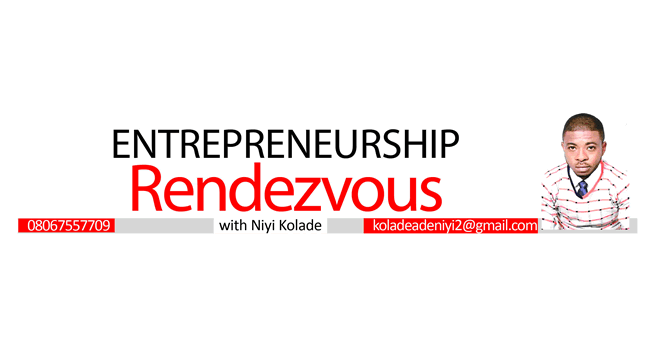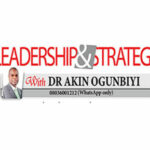“We are, for the most part, born the same. Carbon based organisms. Ten fingers. Ten toes. Excluding birth defects and trauma, we have the same faculties to exploit.” – G. Clarke
Everyone wants to be their own boss, but it takes being under a boss to learn how to become an employer in your own right. The goal is to become an entrepreneurial leader, but it is important to first become an “entrepreneurial servant” or intrapreneur (an entrepreneur within an already established organisation). The goal is to occupy, but it is important to first ‘occuspy’ (understudy and learn while working for an organised system). Understanding makes an entrepreneur outstanding. It is important for you to understand before you undertake. To be an established entrepreneur or business owner, you must be established as a learner in a place bigger than your vision. To be a pioneer of organisation, you must first work as an intrapreneur. Working as an intrapreneur offers you the opportunity to learn vital things which are pivotal to business success such as leadership, administration, operational procedures, processes, methods, etc. We garner experiences through on-the-job learning and also acquire relevant and useful knowledge needed to start out. Entrepreneurs must think big, but start small and move fast. Working for a firm (big or small) can inspire one to think bigger while starting small and later move fast to actually become bigger in time and space and ultimately becoming an inspiration to many others. The ripple effect inspiration creates makes the cycle continues. I usually challenge aspiring entrepreneurs to learn to compete with the competent, that is, to attempt to aim higher than the ‘highest’, think better than the best and do more than the greatest achievers. By so doing, one is able to achieve the impossible and do the unimaginable. A healthy mind must be connected to a healthier mind. To make sense, one must study and learn from other people’s senses. Every great organization started as an idea, but one person doesn’t make an organisation. Many intelligent minds work on daily basis to ensure the continuity of organizations; raising the bar and sustaining the legacy.
My intrapreneurship diary
On the one extreme, an entrepreneur is a person of very high aptitude who pioneers change, possessing characteristics found in only a very small fraction of the population. On the other extreme, anyone who wants to work for himself or herself is considered to be an entrepreneur. In the year 2016, I had just put forward my resignation letter as a senior member of staff of the University of Ibadan, where I worked as an Executive Officer, in the office of the Vice Chancellor. Oops! What was I thinking? Did I have another source of livelihood? No! Did an angel investor come my way? No! I was only responding to the entrepreneurial drive to pioneer change in my chosen field.
Entrepreneurship is not just about making money. Entrepreneurship is about making impact, adding value to something and making it better than you met it. According to Henry Ford, founder of Ford Motor Company, “A business that makes nothing but money is a poor business.” I am still a civil servant but daily exercising my entrepreneurial initiatives by thinking creatively and innovatively, adding value to the institution/establishment, in my own capacity. I must take the responsibility as if it were my personal business, not just being salary-conscious, but being impact-driven. As a civil or public servant, don’t just occupy a seat, set the pace and reset the space. Remember, if you don’t own it you won’t hone it. Take ownership. Like what you do but don’t just do what you like as an intrapreneur (an entrepreneur does what he/she likes). But, you as an employee must learn to flow with, and follow the leader – never outshine the master!
Entreprenurship, energy and productivity
Entrepreneurship is the spirit of creativity and productivity. Knowledge and energy drive productivity while productivity drives economic growth.
Energy is to entrepreneurship, what the internet is to information technology.
Energy is to entrepreneurship, what electricity is to industrialisation.
Everything rises and falls on energy; you are either plugged into energy or plagued with lethargy. Fuel your energy and be full of strategy.
Every year on June 20, World Productivity Day recognizes the importance of being productive. It’s also a day for people to learn how to increase their productivity. Productivity is defined as the efficiency of production of goods or services. The quality of producing something is also another definition for productivity. Many farmers associate productivity with the productivity of their land. Others associate productivity with the use of their minds or hands. Most employers want their workers to be productive. In order to succeed, self-employed people need to find ways to be as productive as possible.
In the workplace, or wherever else, there are often barriers to productivity. These barriers might include:
- Distractions and interruptions
- Lack of information
- Ineffective communication
- Unclear priorities
- Insufficient training
- Inadequate tools and equipment
- Lack of motivation
- Stress
- Too much to do
From intraprenurship to entrepreneurship
- Michael Faraday and George Riebau
At the age of 14, Michael Faraday became an apprentice to George Riebau, a local bookbinder and bookseller in Blandford Street. During his seven-year apprenticeship, Faraday read many books, including Isaac Watts’s The Improvement of the Mind, and he enthusiastically implemented the principles and suggestions contained therein. During this period, Faraday held discussions with his peers in the City Philosophical Society where he attended lectures about various scientific topics. He also developed an interest in science, especially in electricity. Faraday was particularly inspired by the book Conversations on Chemistry by Jane Marcet.
- Nicola Tesla and Thomas Edison
Nikola Tesla was a Serbian-American inventor, electrical engineer, mechanical engineer, and futurist best known for his contributions to the design of the modern alternating current (AC) electricity supply system. In 1884, he emigrated to the United States, where he became a naturalised citizen. He worked for a short time at the Edison Machine Works in New York City before he struck out on his own. With the help of partners to finance and market his ideas, Tesla set up laboratories and companies in New York to develop a range of electrical and mechanical devices. His alternating current (AC) induction motor and related polyphase AC patents, licensed by Westinghouse Electric in 1888, earned him a considerable amount of money and became the cornerstone of the polyphase system which that company eventually marketed.
READ ALSO FROM NIGERIAN TRIBUNE






